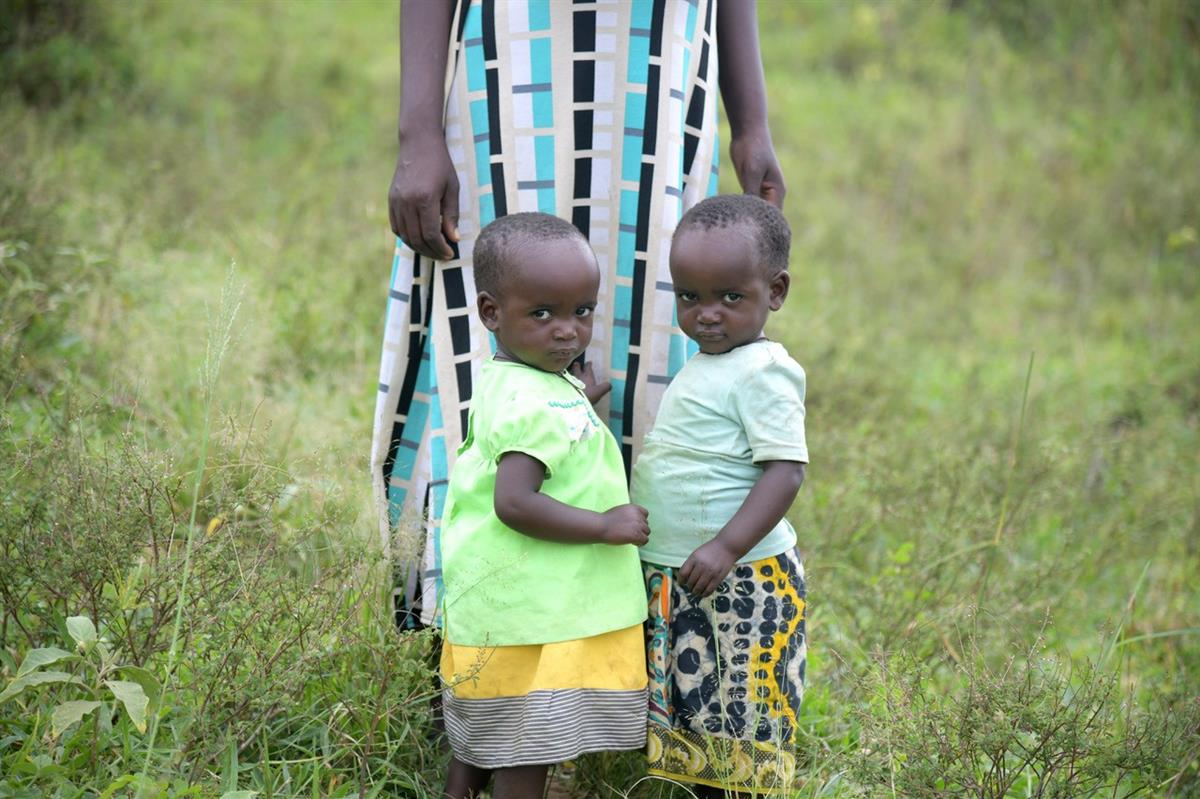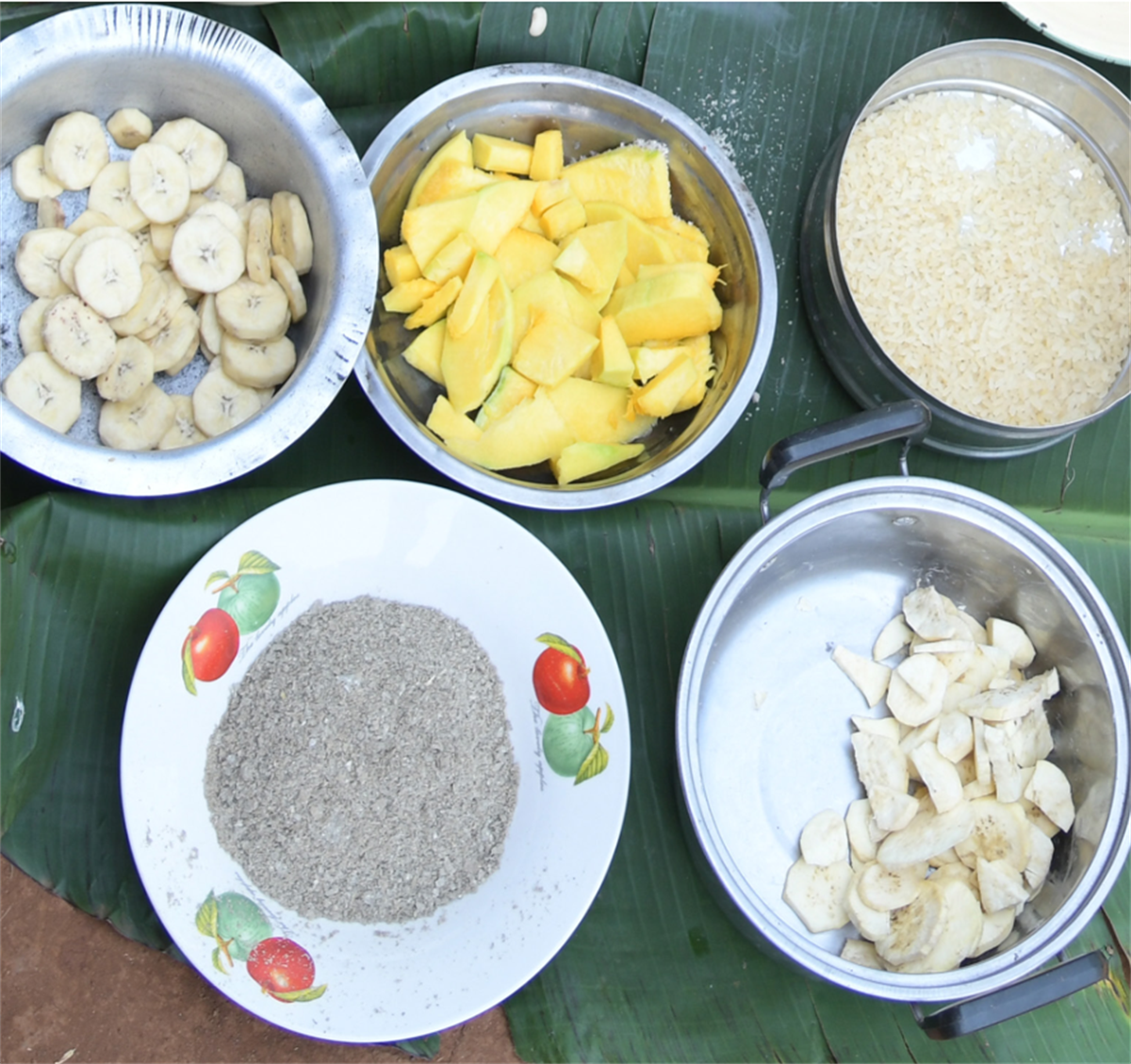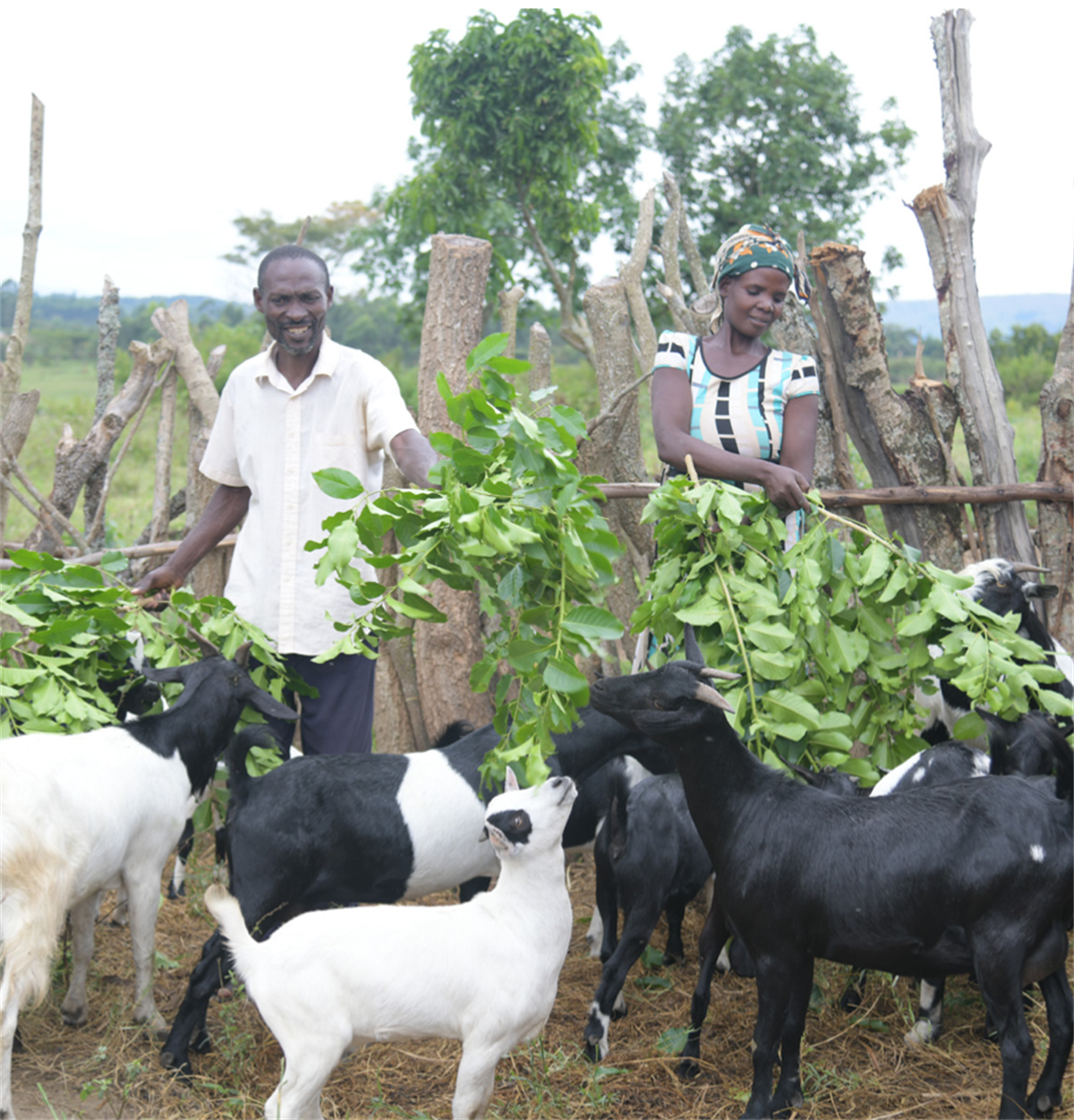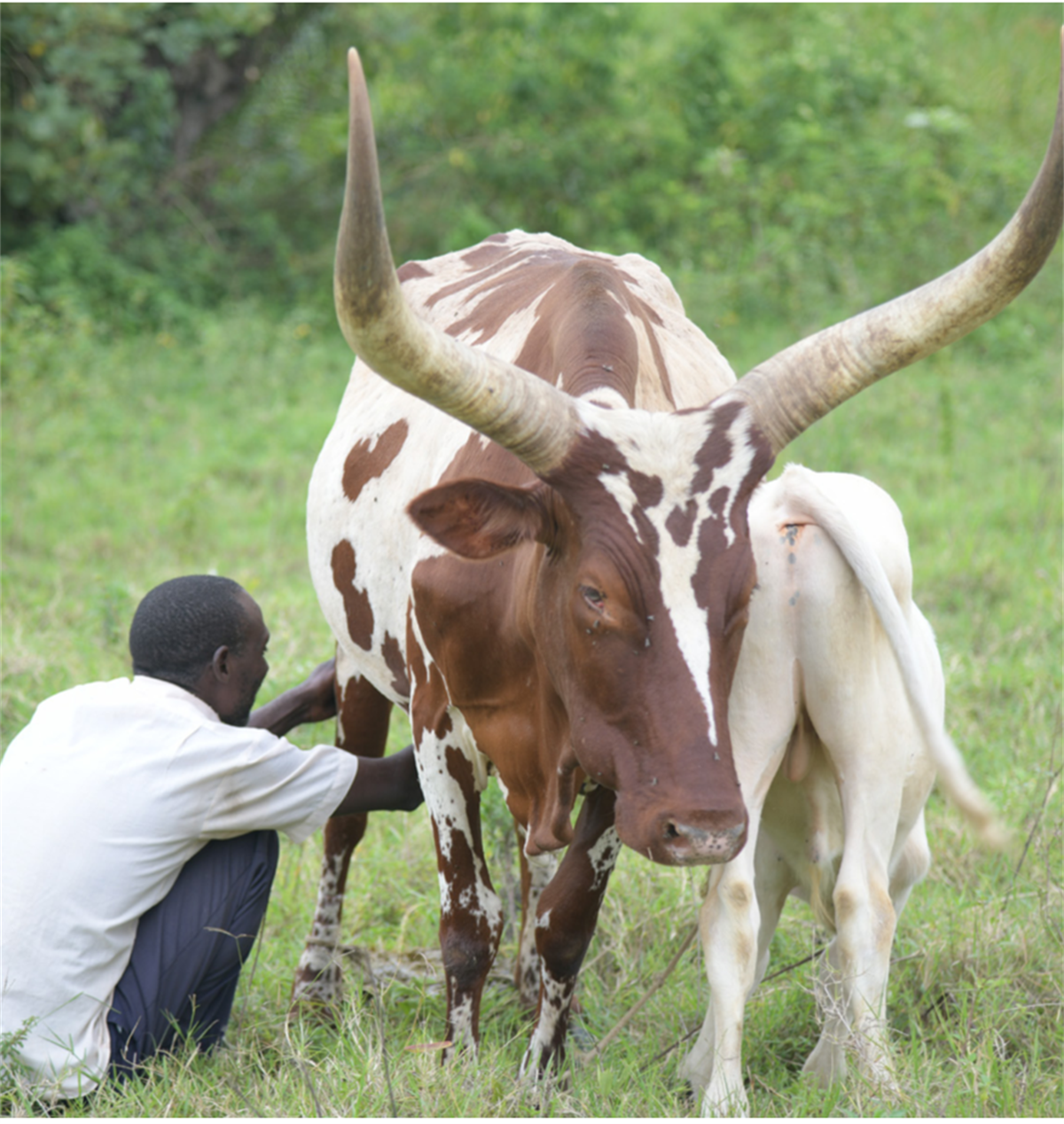When they were one and a half years old, Moreen and Doreen were so small, frail, sick, and tired that they could barely sit up on their own. The twins’ chance of survival was alarmingly low.
"I feared we were going to lose them, recalls Abdallah, their father, with tears in his eyes."
Scovia Arinaitwe, their mother, had experienced firsthand how quickly a child’s health can turn, but she did not realize what the cause might be. Florence Kabacwa, AVSI’s Graduating to Resilience Activity nutrition coach, took one look at the twins and knew what the problem was: malnutrition. As part of the USAID-funded Activity, thousands of families are visited by AVSI’s coaches in South Western Uganda every day.
During the visit, Florence screens children for signs of malnutrition using a simple plastic tape that measures the upper arm’s circumference. If a child falls in the red zone they have severe acute malnutrition, and the coach has to act fast. When the twins showed signs of malnutrition and deteriorating health, they were measured and immediately referred for treatment at the nearest health facility.
"I had just started providing them with lessons on how to cook and eat locally accessible nutritious foods when I found that the twins were malnourished," says Florence Kabacwa.


At that time, Scovia and her husband earned less than a dollar a day gardening, an amount hardly enough to afford a meal. Like many other refugees and host communities living in South Western Uganda struggling with food insecurity, there wasn’t food at home.
In the Kamwenge District alone, hundreds of children suffer from malnutrition annually, which often leads to lifelong health problems that can quickly be passed on to the next generation. Communities and services available are affected by the massive influx of refugees seeking refuge from the unrelenting conflict in Eastern Congo.
Scovia’s determination to ensure her twins recover was remarkable. Despite having to walk long distances, the couple visited the health center each time they had an appointment. The enrollment into the Graduating to Resilience Activity also earned them a monthly cash assistance for food accompanied by regular coaching in good nutrition practices. In their meetings with the Activity coach, they learned how to make nutritious meals using locally available food and to keep their children healthy.
Over six months, Moreen and Doreen continued to show signs of improvement each time they visited the health center. Sometimes, it would just be a gram or two of weight that they gained. But they began to develop beyond just gaining weight. They were able to walk around, sit up on their own, run. The also began smiling at other babies waiting to be weighed and measured. The cooking demonstrations and nutrition messages were working: Doreen and Moreen were finally healthy.
"I’m so happy they are okay. I’m so thankful to Florence, my coach. She helped me learn," says Scovia. "With Florence, I learned how to cook nutritious food and how to feed them well, giving them silverfish, posho, and water."


Since she joined the business coaching sessions, Scovia also learned how to save money. She used the US$ 300 Asset Transfer to start a goat rearing business and now has 34 goats which is three times what she had at the beginning.